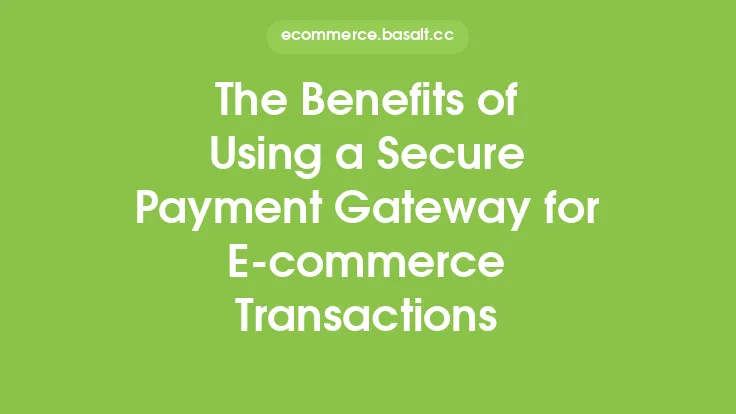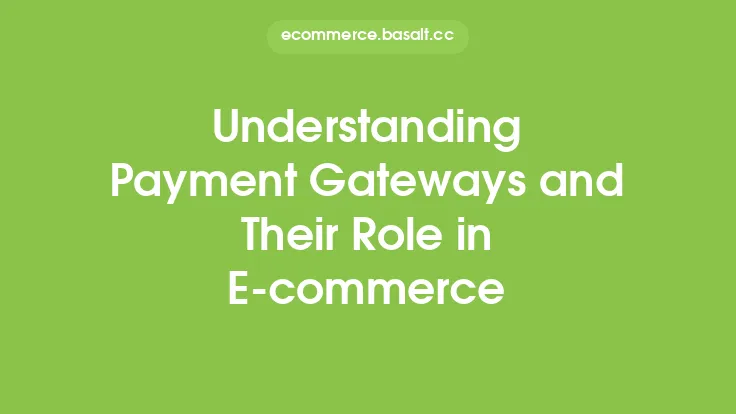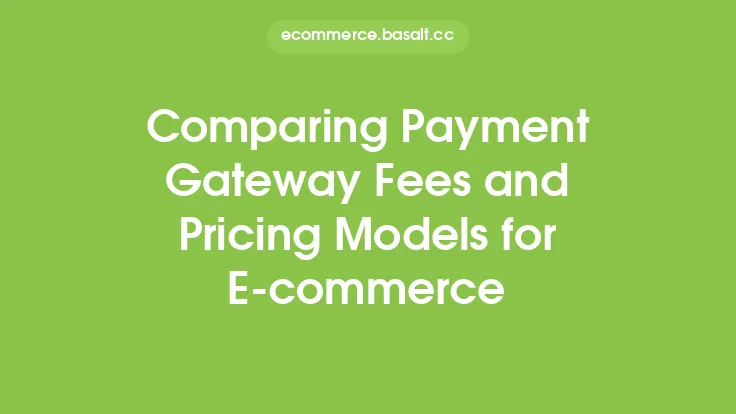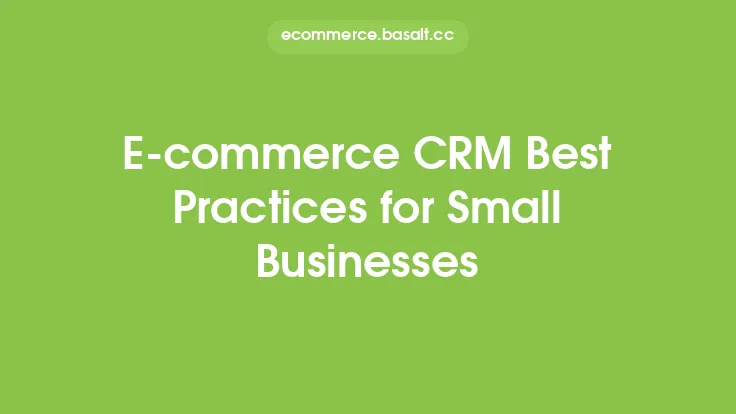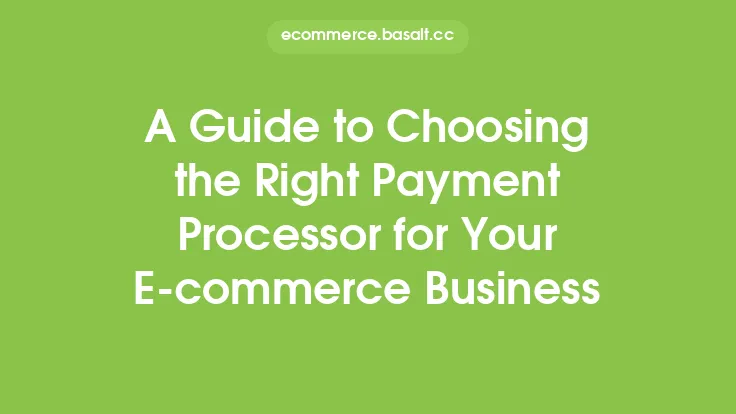When it comes to e-commerce businesses, one of the most critical components is the payment gateway integration. A payment gateway is a service that processes credit card transactions and other payment methods, enabling customers to make purchases online. In this article, we will delve into the world of payment gateway integration, exploring its importance, types, and key considerations for e-commerce businesses.
What is Payment Gateway Integration?
Payment gateway integration refers to the process of connecting a payment gateway to an e-commerce platform, allowing customers to make payments online. This integration enables the secure transfer of payment information between the customer's browser, the e-commerce platform, and the payment gateway. The payment gateway then processes the payment and transfers the funds to the merchant's account. Payment gateway integration is a crucial aspect of e-commerce, as it enables businesses to accept online payments and expand their customer base.
Types of Payment Gateway Integration
There are several types of payment gateway integration, each with its own advantages and disadvantages. The most common types of integration include:
- API Integration: This type of integration involves using an Application Programming Interface (API) to connect the payment gateway to the e-commerce platform. API integration provides a high level of customization and control, but requires technical expertise to implement.
- Hosted Payment Gateway: In this type of integration, the payment gateway is hosted on the payment provider's server, and the customer is redirected to the payment provider's website to complete the payment. Hosted payment gateways are easy to implement, but may not provide the same level of customization as API integration.
- Non-Hosted Payment Gateway: This type of integration involves embedding the payment gateway directly into the e-commerce platform, allowing customers to complete payments without leaving the website. Non-hosted payment gateways provide a seamless customer experience, but require more technical expertise to implement.
Key Considerations for Payment Gateway Integration
When integrating a payment gateway into an e-commerce platform, there are several key considerations to keep in mind. These include:
- Security: Payment gateway integration must be secure to protect sensitive customer information. Look for payment gateways that comply with industry standards such as PCI-DSS and SSL.
- Compatibility: Ensure that the payment gateway is compatible with the e-commerce platform and any other third-party services being used.
- Scalability: Choose a payment gateway that can scale with the business, handling increased traffic and transaction volume.
- Customer Experience: Consider the customer experience when integrating a payment gateway. Look for payment gateways that provide a seamless and intuitive payment process.
Best Practices for Payment Gateway Integration
To ensure a successful payment gateway integration, follow these best practices:
- Test thoroughly: Test the payment gateway integration thoroughly to ensure that it is working correctly and securely.
- Monitor transactions: Monitor transactions closely to detect any issues or errors.
- Provide clear documentation: Provide clear documentation to customers on how to use the payment gateway and troubleshoot any issues.
- Keep software up-to-date: Keep software and plugins up-to-date to ensure that the payment gateway integration remains secure and compatible.
Common Challenges in Payment Gateway Integration
Despite the importance of payment gateway integration, many e-commerce businesses face challenges when implementing and maintaining their payment gateways. Common challenges include:
- Technical issues: Technical issues such as compatibility problems, bugs, and errors can disrupt the payment process and impact customer experience.
- Security concerns: Security concerns such as data breaches, hacking, and phishing can compromise sensitive customer information.
- Compliance issues: Compliance issues such as PCI-DSS non-compliance can result in fines, penalties, and damage to reputation.
Conclusion
Payment gateway integration is a critical component of e-commerce businesses, enabling customers to make online payments securely and efficiently. By understanding the types of payment gateway integration, key considerations, and best practices, e-commerce businesses can ensure a successful and secure payment gateway integration. Whether you're a small startup or a large enterprise, payment gateway integration is essential for expanding your customer base and driving business growth. By following the guidelines and best practices outlined in this article, you can overcome common challenges and provide a seamless and secure payment experience for your customers.
